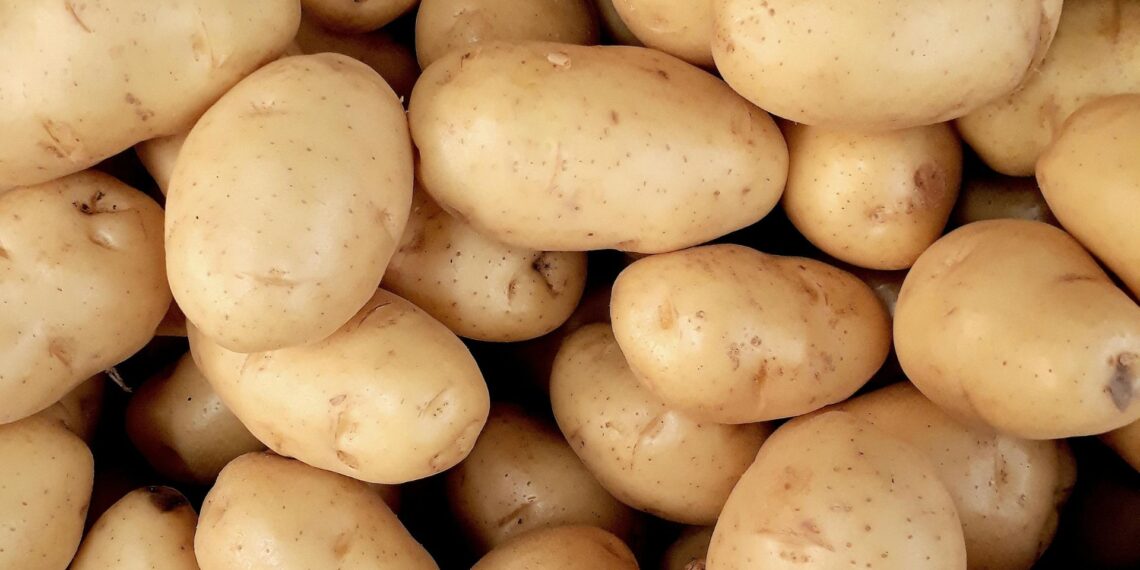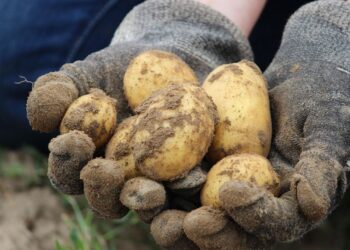As South Africa recently observed World Food Day 2025 under the global theme “Hand in hand for better foods and a better future,” the call for collaboration to end hunger and improve child nutrition took on renewed urgency.
Potato SA shared that the theme highlights the power of partnership between governments, industries, and communities to build sustainable, food-secure futures. Nowhere is this more relevant than in the country’s schools, where the National School Nutrition Programme (NSNP) provides daily meals to millions of learners in under-resourced communities.
However, rising food prices and limited budgets continue to test the programme’s ability to balance cost and nutritional value. In response, Potatoes SA recently partnered with the department of basic education (DBE) to conduct a proof-of-concept trial exploring how potatoes could strengthen the NSNP’s nutritional impact.
How Potatoes SA supports learner nutrition
Willie Jacobs, CEO of Potatoes SA, said all food is not created equal and the country can’t afford to fill children’s stomachs with empty calories that leave them hungry and lethargic soon after eating.
“Potatoes are a whole food, nutrient-dense, affordable, and easy to prepare. Research shows that they provide natural energy and essential nutrients that boost both body and brain,” he said.
Related stories
- How home gardens could transform SA’s food system
- Grandfather’s garden unlocks big dreams for FS potato farmer
- Potato farming: Tips from a pro to beat climate challenges
- Atlas AgriSA Congress charts path to agri resilience
According to Potato SA, the trial conducted at five Gauteng schools – Moses Kotane Primary (Soweto), Dulcie September Primary (Rabie Ridge), Kgabo Primary (Atteridgeville), Banareng Primary (Saulsville), and Morakoma Primary (Mamelodi West) – revealed notable improvements in learner focus, energy, and satiety.
Meanwhile, Dr Carmen Muller, a nutritionist at the University of Pretoria, said research results confirm potatoes are a nutritional powerhouse.
“They offer vitamins, minerals and high-quality, easily absorbed protein, which can help combat micronutrient deficiencies and support healthy cognitive development,” he said.
Tackling childhood malnutrition together
Muller explained that potatoes also acted as a “meal extender,” helping stretch limited ingredients further while offering learners a food they enjoyed but rarely ate at home.
Jacobs stressed that by working hand in hand with the potato industry, they can ensure learners get the nutrition they need to learn, grow, and thrive.
According to Potato SA, childhood malnutrition and micronutrient deficiencies remain major challenges across sub-Saharan Africa, with long-term consequences for health and education.
By incorporating nutrient-dense, locally produced foods such as potatoes into school meals, South Africa can take a meaningful step toward reducing hunger and unlocking children’s potential.
“Good nutrition is the foundation of learning potatoes that can help us make every meal count, for every child, every day,” Jacobs said.
READ NEXT: How to cut costs and boost income with agroecology

Sign-up for the latest agricultural news delivered straight to your inbox every day with Mzansi Today!
















